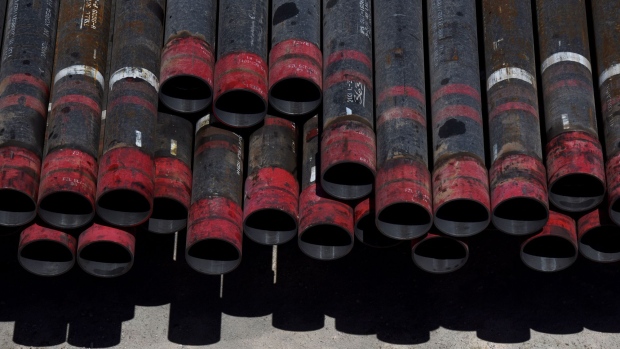Mar 31, 2020
Trump May Let Drillers Stash a Glut of Oil in Federal Storage
, Bloomberg News

(Bloomberg) -- The Energy Department is considering renting space in the nation’s emergency oil reserve to domestic producers awash in crude, according to three people familiar with the matter who asked for anonymity before a formal announcement.
The move would help drillers running out of space to stash their product amid cheap prices and low demand. With storage space and pipelines filling up with crude, domestic producers could begin to curtail drilling.
Pipeline operators have begun asking producers to scale back output as tanks fill. The marketing arm of Plains All American Pipeline LP, one of the biggest shippers of crude in the U.S., sent a letter last week requesting its suppliers “take steps to reduce oil production in response to the pandemic.” A member of Texas’s top oil regulator said Saturday that drillers were getting similar notices from pipeline operators.
Prices for physical delivery of several key crude grades in North America have plunged. In one corner of the market, prices for Wyoming Asphalt Sour, a dense oil used mostly to produce paving bitumen, have already gone negative.
The Energy Department didn’t immediately respond to a request for comment.
The U.S. stockpile, which was set up after the Arab oil embargo in the 1970s, has a maximum storage capacity of about 713.5 million barrels in salt caverns across the U.S. Gulf Coast. It now contains about 635 million barrels.
The move to rent storage space in the reserve comes after congressional Democrats blocked a request by the administration to appropriate $3 billion in funds to buy as much as 77 million barrels of oil for its emergency stockpiles in an an effort by President Donald Trump to support the domestic industry and boost reserves at cheap prices.
It was not immediately clear whether the Energy Department, which manages the Strategic Petroleum Reserve, could act unilaterally, without an additional authorization from Congress.The prospect of opening the SPR for private crude storage was heralded by oil producers, who have implored the Trump administration to broker a compromise with Saudi Arabia and Russia aimed at curtailing production.
“We encourage Congress to work with DOE to ensure they have the resources needed for SPR flexibilities to address the oversupply issues we are facing,” said Anne Bradbury, chief executive of the American Exploration and Production Council.
©2020 Bloomberg L.P.


